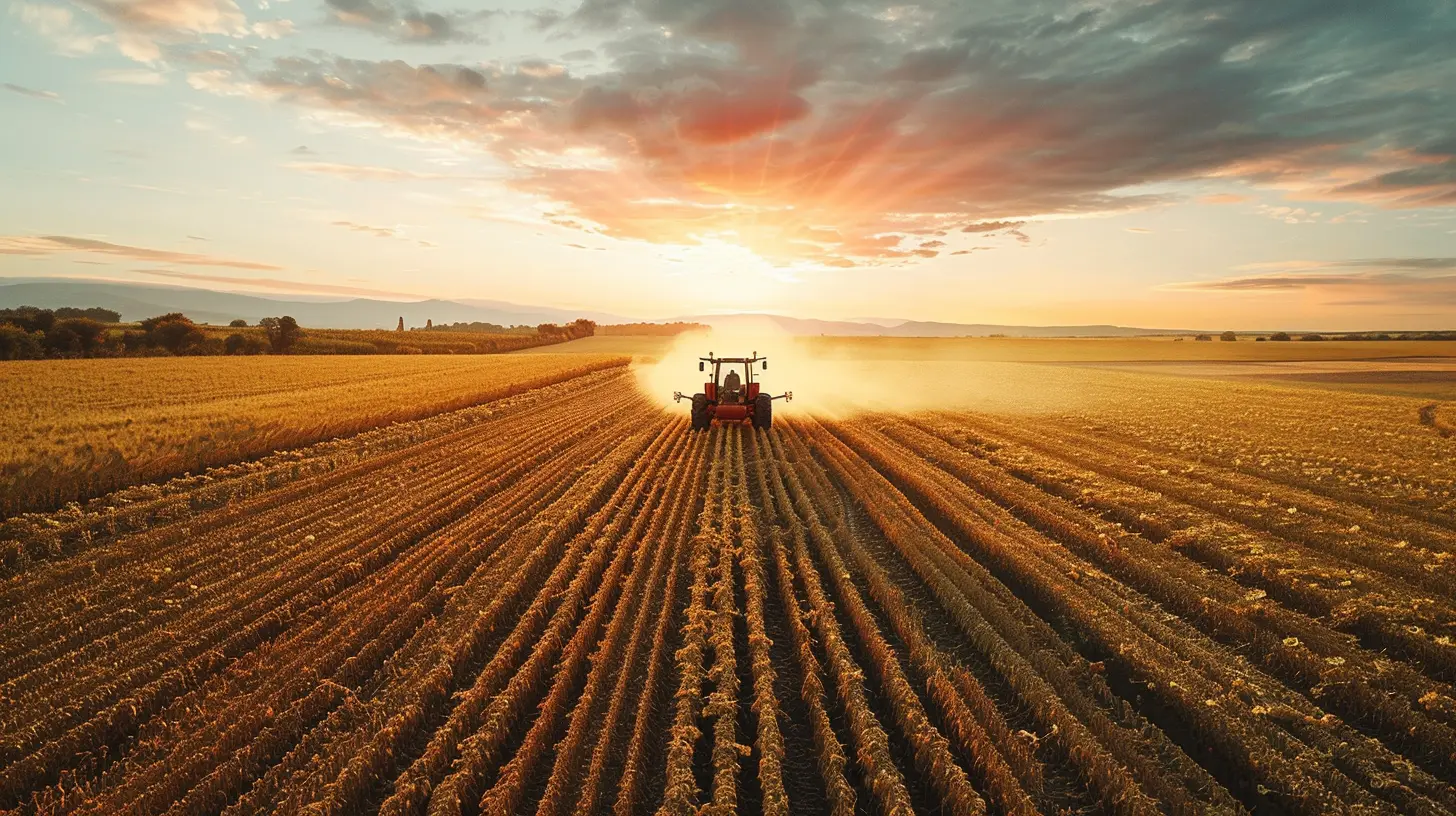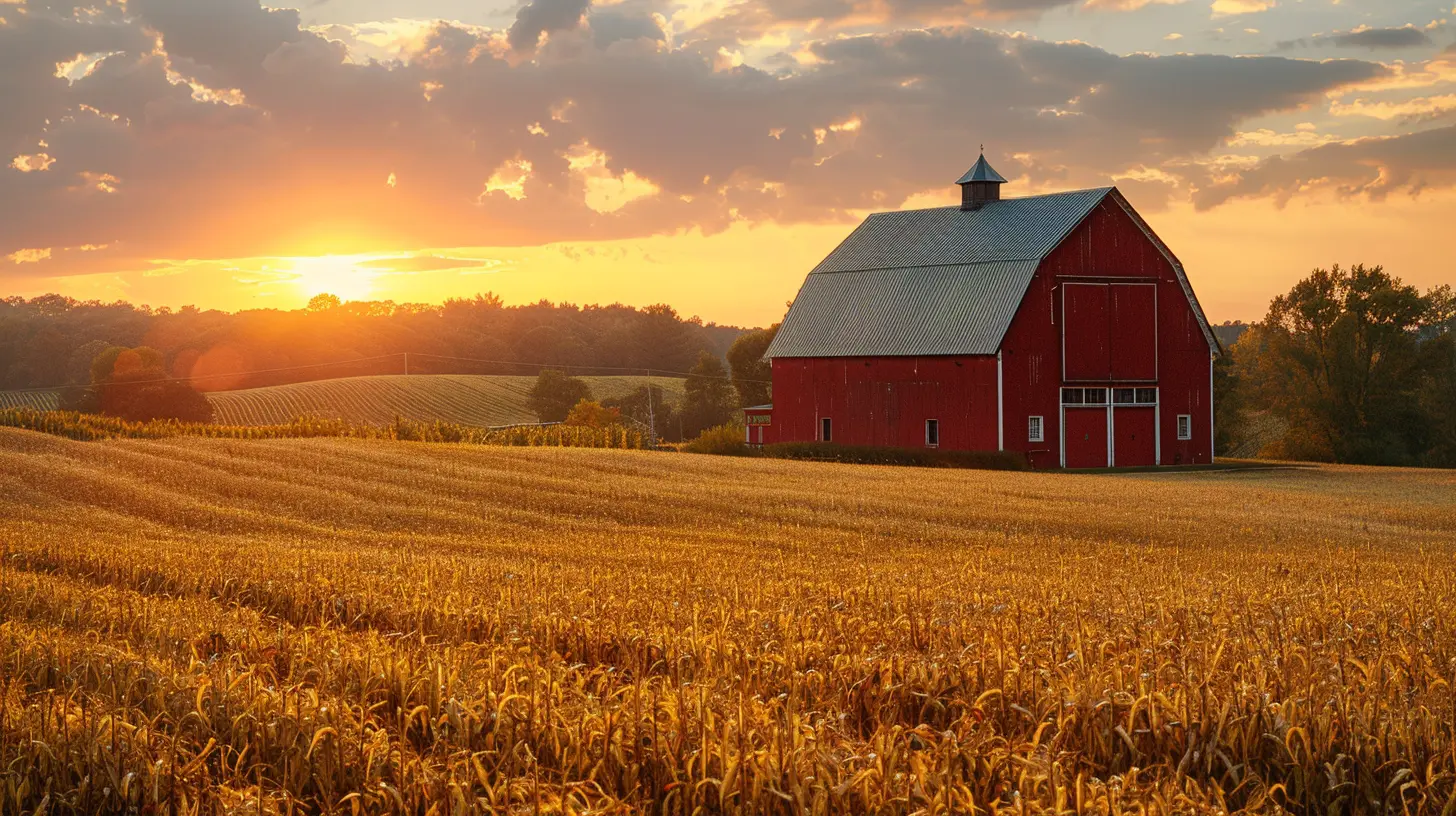Agricultural Property Taxes: What Farmers Need to Know
14 June 2025
Ah, yes—taxes. The delightful, ever-present reality that keeps us all on our toes. If you're a farmer, you already juggle enough—unpredictable weather, finicky crops, and livestock that seems to have a secret escape plan. But wait, let's add some extra spice to your life: agricultural property taxes.
Don't worry, though. We're about to break it all down in a way that actually makes sense (and maybe even makes you chuckle). So, grab a cup of coffee—farming might be your passion, but today, taxes are your destiny. 
What Are Agricultural Property Taxes?
In the simplest terms, agricultural property taxes are what you pay the government for the privilege of owning farmland. Because, apparently, nurturing the land and feeding the world just isn't enough.Now, before you start rolling your eyes, there is some good news. Many areas offer tax incentives, deductions, and exemptions for agricultural landowners. So, while the tax man always comes knocking, he might not be taking as much as you fear—if you know how to work the system properly. 
Why Farmers Get Special Tax Treatments
Let's be real—farming isn't your typical 9-to-5 gig. You're not pushing papers in a cozy office; you're battling the elements, dealing with fluctuating crop prices, and trying not to cry when your tractor decides to die mid-season. The government (surprisingly) recognizes that and often provides special tax reliefs for agricultural land.But why? Here’s the logic (yes, the government apparently has some):
- Preserving Farmland – They want to encourage farming instead of turning every open space into a shopping mall.
- Encouraging Food Production – A nation without farmers is a nation without food. Simple as that.
- Economic Stability – Local agriculture supports economies, creates jobs, and keeps small communities alive.
Long story short: The government wants you to keep farming, so they give you a few tax breaks... but of course, not without making you jump through some hoops first. 
Types of Agricultural Tax Benefits
Now, let's talk about the good stuff—the tax perks that help you keep a little more of your hard-earned money.1. Use-Value Assessments (UVA)
Instead of taxing your land based on its potential value (like some evil villain plotting against you), UVA taxes it based on its agricultural use. Translation? You're not penalized just because a developer would pay millions to turn your fields into a suburban nightmare.However, there’s a catch: If you suddenly decide to sell your farm to a condo developer, you might have to pay back taxes for the difference. So, think twice before turning your barn into a high-rise.
2. Agricultural Exemptions
Depending on where you live, you might qualify for certain property tax exemptions. These vary by state or country but often include:- Exempt farm buildings & equipment – Some jurisdictions don’t tax barns, silos, or machinery.
- Lower tax rates for active farms – As long as your land is productive, you might get a discount.
- Estate Tax Relief – Family farms passed down through generations often receive tax breaks to prevent losing the land due to hefty inheritance taxes.
3. Tax Credits for Conservation Efforts
If you're into sustainable farming and conservation, some places provide tax credits for things like soil conservation, water management, and reforestation. Yep, saving the planet and saving money—it’s a win-win.
The Biggest Tax Mistakes Farmers Make
You’ve got enough on your plate, but taxes aren’t something you can afford to mess up. Here are some classic blunders that could cost you:1. Not Keeping Proper Records
If you think you can just eyeball your taxes at the end of the year—yeah, no. The IRS will have a field day (and not the kind you enjoy). Keep records of:- Land use history
- Expenses related to farming
- Proof of agricultural activity
Receipts, invoices, and farm records aren’t just boring paperwork. They protect you from tax nightmares.
2. Assuming You're Automatically Tax-Exempt
Just because you own land doesn’t mean you automatically qualify for tax breaks. Many states require proof of agricultural activity, like income reports from farming products. If you’re letting your land sit with no production, you might be taxed at a much higher rate.3. Not Taking Advantage of Available Programs
Governments offer many agricultural grants, tax credits, and subsidies—but they don’t exactly shout it from the rooftops. It’s up to you to research and apply. Otherwise, you’re leaving money on the table.How to Reduce Your Agricultural Property Tax Burden
Nobody wants to overpay on taxes. Here’s how you can legally minimize your tax liability:1. Ensure Your Land is Properly Classified
Different tax rates apply to residential, commercial, and agricultural land. If your land isn’t correctly classified, you could be overpaying massively. Double-check your local tax office to ensure your property is assessed as farmland.2. Enroll in Agricultural Tax Programs
Many states offer Agricultural District Programs, where landowners voluntarily commit to farming for a certain number of years in exchange for lower tax rates. If you qualify—grab the opportunity!3. Consider Conservation Easements
If you want to protect your farmland from future development, conservation easements can reduce your taxes significantly. These programs often provide federal tax deductions and reduce overall taxable value.4. Hire a Tax Professional
Let’s be honest—tax codes are a labyrinth designed to confuse even the smartest among us. A farm tax professional knows all the loopholes, credits, and deductions you should be taking. If you're serious about saving money, hiring one is worth every penny.The Government Might Be Confusing, But Taxes Don’t Have to Be
Yes, agricultural property taxes are about as exciting as watching paint dry. But knowing how they work can save you thousands. The truth is, the government has a love-hate relationship with farmers—they want to tax you, but they also need you.So, take advantage of every tax break, exemption, and program available. Because at the end of the day, your farm feeds communities, supports local economies, and keeps traditions alive. The least they can do is give you a break on taxes, right?
Now, go forth and conquer the tax world—one deduction at a time.
all images in this post were generated using AI tools
Category:
Property Tax GuideAuthor:

Vincent Clayton
Discussion
rate this article
3 comments
Noelle Martin
This article effectively highlights the complexities of agricultural property taxes, emphasizing the importance for farmers to understand their obligations and potential exemptions to optimize their financial strategies.
June 23, 2025 at 12:20 PM

Vincent Clayton
Thank you for your insight! I'm glad you found the article helpful in navigating the complexities of agricultural property taxes.
Melody Franco
Understanding agricultural property taxes is essential for farmers to thrive. Knowledge empowers you to make informed decisions, ensuring a prosperous future for your farm and community. Keep growing!
June 16, 2025 at 4:07 AM

Vincent Clayton
Thank you for your insightful comment! Understanding agricultural property taxes is indeed vital for informed decision-making and fostering a successful farming future.
Evangeline Romero
Oh joy, more taxes for farmers! Because who doesn’t love the thrill of deciphering complicated agricultural property tax codes? Forget the fun of planting crops; let’s dive into the riveting world of tax forms instead. Farming just got a whole lot more exciting!
June 15, 2025 at 8:13 PM

Vincent Clayton
I understand the frustration! Navigating tax codes can be overwhelming, but it's crucial for optimizing your farm's financial health. Let's make it easier together!



